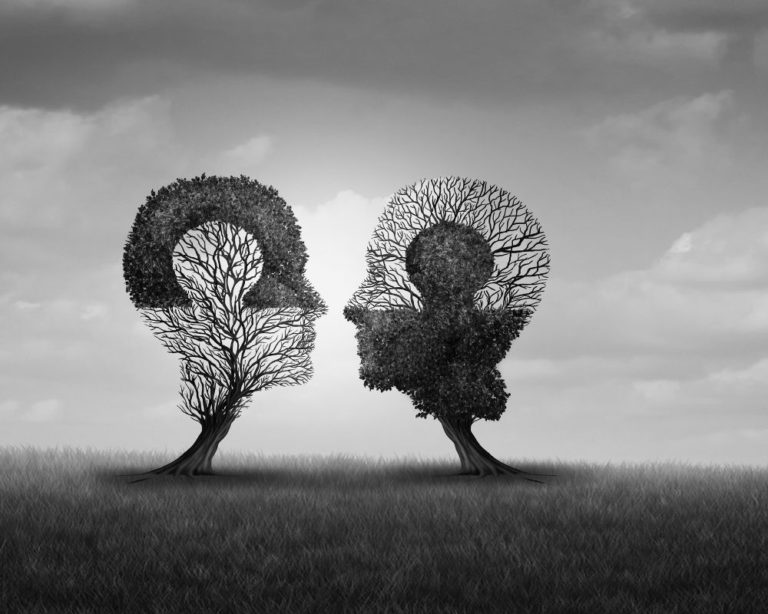
Cheryl Groskopf, LMFT, LPCC
Holistic Anxiety, Trauma, and Attachment Therapist in Los Angeles
Why You Keep Choosing the Wrong Partners: Insights from an Attachment Therapist in Los Angeles
Ever wondered why you keep picking partners you know won’t work out long-term? It’s not just bad luck or poor judgment. There’s a whole mix of psychological, biological, and evolutionary factors at play. Understanding these can help shed light on why you might be stuck in this cycle. As an attachment therapist in Los Angeles, I’m here to help you break free from these patterns and find the lasting, fulfilling relationships you deserve. Let’s dive into why this happens and how you can change it for the better.
Insights from an Attachment Therapist in Los Angeles
Psychological Factors: Why You Pick Partners That Won’t Work Long-Term
Attachment Styles
Let’s talk attachment styles! If you’ve got an avoidant attachment style, this one’s for you. Developed early in life, our attachment styles play a huge role in how we connect with others. If you tend to avoid deep emotional bonds, you might subconsciously pick partners where a long-term connection feels impossible or just too much to handle. It’s like your brain is reinforcing this belief that you need to stay independent and emotionally distant. Sound familiar? This can keep you stuck in a cycle of short-lived relationships, never getting too close, and ultimately feeling unfulfilled.
Why does this happen? It’s all about early experiences and how they shape your view of relationships. If you grew up in an environment where emotional needs weren’t consistently met, you might learn to rely on yourself, seeing deep connections as risky or unnecessary. So, you pick partners who can’t or won’t provide that deep connection, and it feels safer. But here’s the thing: recognizing this pattern is the first step to changing it. In therapy, we can work on understanding and shifting these deep-seated beliefs to help you build healthier, more fulfilling relationships.
Familiarity and Repetition Compulsion
Now, let’s dive into another biggie: familiarity and repetition compulsion. Ever find yourself drawn to people who remind you of your past, even if those relationships weren’t great? You’re not alone. We’re creatures of habit, and what’s familiar often feels safe, even if it’s unhealthy. This can lead to choosing partners who mirror the dynamics you experienced in childhood. You might be trying to fix past hurts or hoping for a different outcome with a similar type of person. It’s like your brain is on autopilot, leading you down the same old path.
This subconscious drive can be powerful. If you had a chaotic or unloving environment growing up, you might find yourself in similar adult relationships, trying to rewrite history. But this rarely works out the way you hope. Instead, it keeps you stuck in a loop of unfulfilling relationships. The good news? Therapy can help you break free from this cycle. By understanding why you’re drawn to certain types of partners, you can start making conscious choices that lead to healthier, more rewarding connections. Let’s work together to change those patterns and find the love you truly deserve.
Avoidance of Vulnerability
If you’re subconsciously avoiding deep, meaningful connections, you might pick partners who are emotionally unavailable or just not right for the long haul. This way, you keep things surface-level and protect yourself from getting hurt. It’s a defense mechanism—if you never go too deep, you never have to face the pain of being truly seen and possibly rejected. Sound familiar?
This avoidance can become a self-fulfilling prophecy. You choose partners who can’t meet your emotional needs, which reinforces the idea that deep connections are dangerous or unattainable. But here’s the kicker: by not allowing yourself to be vulnerable, you miss out on the genuine intimacy and connection that come with a healthy relationship. Therapy can help you learn to embrace vulnerability in a safe and supportive environment, paving the way for deeper, more fulfilling connections.

Low Self-Esteem
If you struggle with self-esteem, you might feel you don’t deserve a happy, long-term relationship. This belief can drive you to pick partners who aren’t compatible, validating your negative self-perceptions. It’s like a vicious cycle—you don’t feel worthy, so you choose partners who reinforce those feelings, keeping you stuck in unfulfilling relationships.
Breaking this cycle starts with recognizing your worth and challenging those negative beliefs. Therapy can be a game-changer here. By working through your self-esteem issues, you can start to see yourself in a more positive light and make better choices in your relationships. Remember, you deserve love and happiness just as much as anyone else. Let’s work on building that belief together.
Fear of Intimacy
Finally, there’s the fear of intimacy. For some, the thought of a deep, committed relationship is overwhelming. You might choose partners who aren’t a good long-term match to avoid facing these fears. It’s a way to keep yourself safe from the responsibilities and emotional depths that come with true intimacy. But in doing so, you’re also keeping yourself from experiencing the joys and rewards of a real connection.
Understanding and addressing this fear can open up a whole new world of possibilities in your relationships. In therapy, we can explore where this fear comes from and develop strategies to manage it. It’s about learning to embrace intimacy without feeling overwhelmed, allowing you to form the lasting, meaningful relationships you truly desire.

Evolutionary Influences on Relationship Choices: Guidance from an Attachment Therapist in Los Angeles
Biological and Evolutionary Factors
Neurochemical Responses
Let’s dive into the brain chemistry of relationships. Ever noticed how even an unfulfilling relationship can make you feel good? That’s thanks to neurochemical reactions, like the release of dopamine and oxytocin. These chemicals create temporary feelings of happiness and bonding, making it tough to walk away, even when you know the relationship isn’t right. It’s like your brain is tricking you into staying because those short bursts of happiness are hard to give up. But remember, those feelings are fleeting and not a solid foundation for a lasting relationship.
Breaking free from this cycle involves recognizing the role these chemicals play and understanding that real, lasting happiness comes from deeper, more fulfilling connections. In therapy, we can explore these patterns and help you develop strategies to seek out and maintain healthier relationships. It’s about learning to prioritize long-term satisfaction over short-term highs.
Evolutionary Psychology
From an evolutionary perspective, short-term relationships might have been beneficial for genetic diversity and reproductive success. While we’re no longer living in the wild, these primal drives can still influence our choices. You might find yourself pursuing relationships that aren’t meant to last because, on some level, your brain is wired to think this way.
In modern times, relationships are more about emotional connection than reproduction. But understanding these evolutionary influences can help you see why you might be drawn to certain types of partners. Therapy can help you align your relationship choices with your current needs and desires, rather than outdated evolutionary drives. It’s about making conscious choices that lead to lasting happiness.

Survival Instincts
Let’s get into survival instincts. Biologically, humans are wired to be self-sufficient. In early societies, being able to contribute and not just consume resources was crucial for survival and social standing. This ingrained survival mechanism might push you to avoid deep connections, fearing they’ll make you vulnerable or dependent.
Understanding this instinct can help you see why you might be keeping people at arm’s length. Therapy can help you reframe these survival mechanisms in the context of modern relationships, where emotional interdependence is not just okay—it’s necessary for deep, fulfilling connections. Let’s work on balancing self-sufficiency with the ability to form meaningful bonds.
Social Cohesion
Lastly, let’s talk about social cohesion. Evolutionarily, humans are social creatures who thrive on group cooperation and cohesion. The fear of being a burden might stem from an instinctual understanding that those who overly depend on the group without reciprocating could be ostracized, affecting survival and reproductive opportunities. This fear can drive you to avoid deep connections, worrying you’ll be a burden.
Recognizing this fear is the first step. In therapy, we can work on building healthier self-perceptions and understanding that modern relationships are about mutual support, not just survival. It’s about finding a balance where you can rely on others without feeling like a burden. This can lead to more secure and fulfilling relationships, breaking free from the old survival-based patterns.
How Self-Esteem Shapes Your Relationships: A Los Angeles Therapist Explains
Self-Esteem and Self-Worth in Partner Selection
Low Self-Esteem
Let’s dig into self-esteem and how it messes with your love life. If you struggle with low self-esteem, you might feel deep down that you don’t deserve a happy, long-term relationship. This sneaky belief can drive you to pick partners who aren’t right for you, almost like you’re trying to prove to yourself that you’re not worthy of something better. It’s a harsh cycle—choosing people who validate your negative self-perceptions, which keeps you stuck in unfulfilling relationships.
Think about it: when you believe you’re not good enough, you might settle for partners who don’t treat you well or who simply aren’t a good match. This isn’t about making bad choices on purpose; it’s about a subconscious pattern that reinforces your low self-worth. The good news? You can break this cycle. Therapy can help you build a healthier self-esteem and learn to recognize your worth, leading to better relationship choices.
As an attachment therapist in Los Angeles, I’ve seen how transformative it can be when someone starts to believe they deserve more. By working on your self-esteem, you can shift your perspective and begin to attract partners who appreciate and respect you. It’s about changing that inner dialogue and understanding that you are worthy of love and happiness. Let’s work together to rewrite that narrative and help you find the fulfilling, lasting relationship you deserve.

Attachment Therapist Los Angeles
Fear of Intimacy and Its Impact on Long-Term Relationships
Protection Against Intimacy
For some, the idea of a committed relationship and all the responsibilities that come with it can be downright overwhelming. This fear can lead you to subconsciously pick partners who aren’t a good long-term match. It’s a way to avoid facing those deep-seated fears about intimacy. By keeping relationships short and superficial, you protect yourself from the potential pain of being truly seen and potentially rejected.
This avoidance can act as a defense mechanism. Engaging in relationships that you know won’t last helps you dodge vulnerability and the emotional risks of a deep, enduring connection. It’s a way to maintain control and keep yourself safe from perceived threats. But here’s the catch: by doing this, you also miss out on the profound joy and fulfillment that come from genuine intimacy.
Understanding these dynamics is crucial. In therapy, we can explore these patterns and motivations, helping you recognize why you might be avoiding intimacy. By addressing these underlying issues, you can start to form healthier, more fulfilling relationships that align with your conscious desires for connection and closeness. As an attachment therapist in Los Angeles, I’m here to help you navigate these complexities and find the courage to embrace deeper connections.
Avoidance of Vulnerability
Avoidance of vulnerability is another big piece of the puzzle. If you’re engaging in relationships that you subconsciously know won’t last, it’s often a way to avoid vulnerability. By keeping things surface-level, you protect yourself from the potential pain of a deep, enduring connection. It’s a strategy to avoid being truly seen and possibly rejected. Sound familiar?
This pattern might feel safe in the short term, but it ultimately keeps you from experiencing the deep connections that bring lasting happiness. Therapy can help you understand and overcome these fears. We can work together to build the skills and confidence needed to embrace vulnerability, leading to more meaningful and fulfilling relationships. It’s about breaking down those walls and allowing yourself to be open to the love and intimacy you deserve.
Not Wanting to Be A Burden
Not wanting to be a burden can be a major protective measure. By not asking for help, you shield yourself from potential rejection or disappointment, keeping an emotional distance in your relationships. It’s like putting up a wall to keep yourself safe from the pain of being truly seen and possibly turned away. Sound familiar?
This strategy might seem like it’s working in the short term, but it ultimately keeps you from experiencing the deep, meaningful connections that make relationships truly fulfilling. Therapy can help you understand this pattern and find healthier ways to connect without the fear of being a burden.
Control and Predictability
Maintaining independence is another way to keep control over your environment and outcomes. Relying on others introduces uncertainty, which can be deeply uncomfortable for some. It’s all about maintaining predictability and avoiding the unknowns that come with deep emotional connections.
Understanding this reluctance to be seen as a burden requires exploring the psychological, biological, and social-cultural factors at play. It’s often a defense mechanism against vulnerability and rejection, deeply rooted in your history and reinforced by societal norms. As an attachment therapist in Los Angeles, I can help you address these underlying issues, promoting healthier self-perceptions and fostering a more balanced approach to interdependence in relationships. Together, we can work on breaking down these barriers and building the trust and intimacy you need for more fulfilling connections.

Attachment Therapy in Los Angeles
Ways to Stop Dating People Who Aren’t Good Long Term
Breaking the cycle of dating people who aren’t good long-term starts with self-awareness. First, recognize your patterns. Reflect on your past relationships and identify common traits among your partners. Are you choosing people who reinforce negative beliefs about yourself? Understanding these patterns is the first step toward change. As an attachment therapist in LA, I can help you delve into these patterns and understand the underlying causes.
Next, work on building your self-esteem and self-worth. When you believe you deserve better, you’re more likely to seek out and attract partners who are a good match for you. Therapy can be instrumental in this process. Through attachment therapy, we can address the deep-seated issues that affect your self-esteem, helping you develop a healthier self-image and make better choices in your relationships.
Finally, learn to embrace vulnerability. Fear of intimacy and vulnerability can lead you to pick partners who aren’t right for you. Therapy can help you become more comfortable with vulnerability and learn to open up in a safe and supportive environment. By addressing these fears, you can build stronger, more meaningful connections and choose partners who are truly good for you in the long term.
Connect with an Attachment Therapist in Los Angeles
Meet Cheryl Groskopf, LMFT, LPCC
Ready to break free from the cycle of unfulfilling relationships? As an attachment theory therapist, I specialize in helping individuals understand their relationship patterns and develop healthier connections. Together, we can work through the underlying issues that have been holding you back, building a foundation of self-worth and confidence.
Don’t settle for less than you deserve. Let’s work together to create the fulfilling, long-term relationships you’re looking for. Reach out today to schedule a session and start your journey toward healthier, happier connections. It’s time to invest in yourself and your future.
I offer free 15-minute consultations to help determine if we’re a good fit for working together. During this consultation, we can discuss your specific concerns, what you’re hoping to achieve through therapy, and how I might be able to help you. This is also a chance for you to ask any questions you have about my approach and to see if my style resonates with you. I’ll provide honest feedback on how or if I can assist with your needs.
Additional Blogs On Attachment Therapy in Los Angeles
Cheryl Groskopf's Specialties
Anxiety, Attachment, Trauma, And CPTSD
As a therapist in Los Angeles, I specialize in anxiety, attachment, trauma, and Complex PTSD (CPTSD). These areas often intertwine, affecting how we choose and maintain relationships. Whether you’re dealing with overwhelming anxiety, struggling with trauma, or navigating the complexities of CPTSD, understanding your attachment patterns can be a crucial step toward healing. In therapy, we can address these interconnected issues, helping you build healthier, more fulfilling relationships and a more balanced, confident self.
My approach integrates various therapeutic modalities such as somatic therapy, holistic therapy, and Internal Family Systems (IFS) therapy. These techniques help address and heal the root causes of your struggles, promoting deeper emotional healing and more meaningful connections.
If you’re ready to explore these aspects further and work on breaking free from unhealthy patterns, I offer free 15-minute consultations to see if we’re a good fit. Reach out today to start your journey toward a healthier, happier life.







